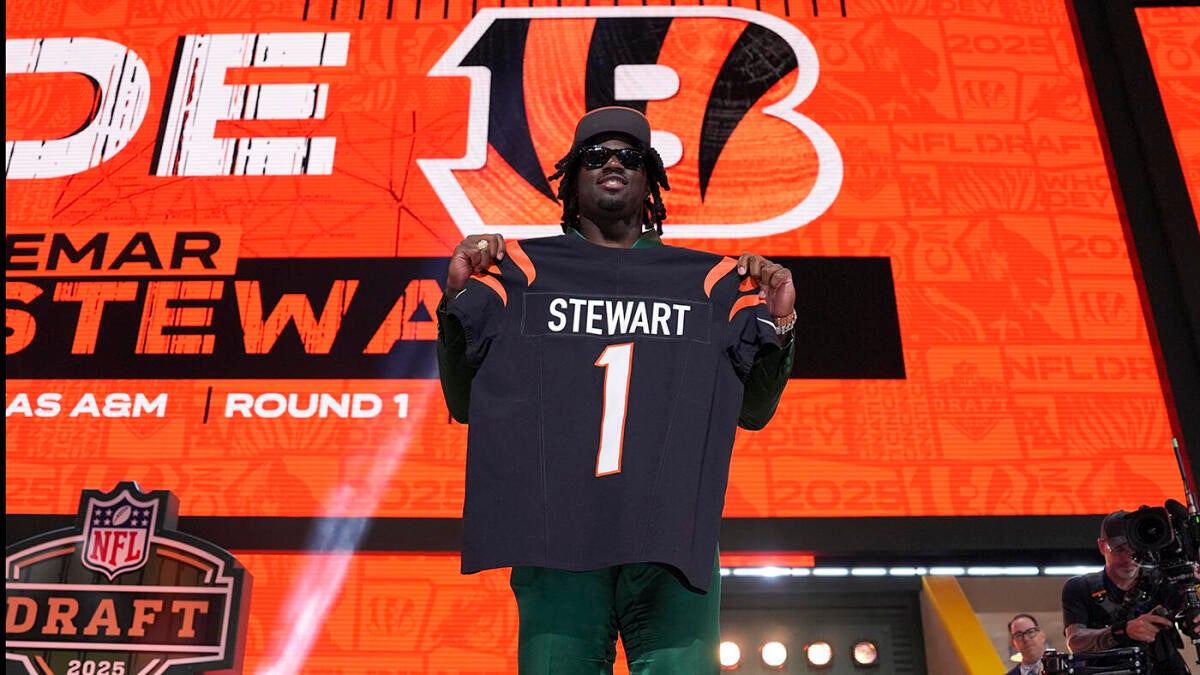Unpacking the Shemar Stewart Contract Dispute: Insights into Rookie Negotiations in the NFL
The ongoing contract dispute between Shemar Stewart, the Cincinnati Bengals’ 2025 first-round pick, and the team offers a revealing lens into the complexities of rookie negotiations in the NFL. Stewart’s holdout, rooted not in salary size but in specific contractual language, highlights the evolving power dynamics between players and organizations, the importance of guaranteed protections, and the broader implications for team chemistry and player integration.
Understanding the Roots of the Dispute
At face value, rookie contracts in the NFL’s first round follow a largely standardized formula dictated by the league’s rookie wage scale. Typically, these deals span four years with set salary ranges and structured bonuses. Stewart’s case deviates from this norm; despite being the 17th overall pick, he has withheld his signature on the contract and the critical participation waiver.
The heart of the impasse lies in clauses that grant the Bengals the ability to void future guarantees—a crucial point of contention. For Stewart and his camp, these provisions compromise financial security, especially concerning injury risk. In a sport marked by its physical toll, such protections carry tangible significance. Stewart’s refusal to accept terms perceived as insufficient underlines a growing trend where rookies are increasingly savvy about contract nuances rather than focused solely on headline salary figures.
The Domino Effect on Team Dynamics
Contract disputes rarely exist in a vacuum; Stewart’s absence from key team activities, including missing mandatory minicamp sessions, directly impacts his ability to acclimate to the professional environment. Offseason periods are crucial for rookies to absorb playbooks, build rapport with teammates and coaches, and transition smoothly into the NFL’s demands.
Fan reactions mirror the divide surrounding this stalemate. Some view Stewart’s holdout as a potential threat to team cohesion and his readiness, while others sympathize with his quest for equitable terms. This division illustrates a broader cultural shift, as athlete empowerment slowly reshapes expectations around rookie deals. Moreover, the Bengals’ prior experience with similar negotiations, notably with their 2024 first-rounder Amarius Mims, suggests systemic negotiation challenges within the franchise’s approach to rookie contracts.
Contract Language: The Fine Print That Makes All the Difference
The intricate contractual language at issue spotlights the tension between organizational control and player security. Teams argue that clauses allowing them to void guarantees provide financial flexibility and safeguard against unpredictable performance or injury setbacks. Conversely, players advocate for firm guarantees and explicit injury protections to secure their futures in an inherently risky profession.
Shemar Stewart’s firm stance exemplifies a new breed of players who possess a heightened awareness of their contractual rights. His confident assertion of being “100% right” signals a shift away from passively accepting standard terms toward proactively shaping contract content. This assertiveness challenges traditional negotiation models wherein rookie contracts were treated as routine formalities rather than strategic arrangements.
The Strategic Use of Holdouts in Negotiations
Stewart’s partial participation and missed minicamp sessions clearly function as negotiation leverage. By stepping back from full engagement in team preparations, Stewart accentuates his importance and pressures the Bengals to revisit the disputed terms. However, this strategy carries inherent risks. Extended holdouts can delay a rookie’s full immersion into team strategy, potentially impacting performance early in the season.
Such tactics are not novel but reflect a growing repertoire of negotiation maneuvers focused on protected guarantees and injury clauses—concerns that have become increasingly pronounced as the financial stakes in the NFL escalate and player health receives greater scrutiny.
Consequences for Both Parties
From the Bengals’ vantage, the drawn-out negotiations jeopardize the immediate contribution of a prized draft pick during a critical formative phase. Publicly visible contract battles can also tarnish team morale and brand image, demanding a delicate balance between enforcing organizational policies and fostering positive player relations.
For Stewart, the choice to maintain a firm negotiating line establishes a precedent that prioritizes personal value and long-term security. While it may complicate early perceptions, it also frames his professional journey as one marked by deliberate advocacy rather than passive acceptance.
Closing Thoughts: Navigating Toward a Solution
Stewart’s contract dispute underscores how rookie contracts today encompass far more than standardized salary numbers; they are arenas where legal nuances and player protections assume prime importance. Successfully resolving such conflicts demands pragmatic dialogue; the Bengals must reconcile fiscal responsibility with relational diplomacy, while Stewart navigates asserting his worth without alienating key team connections.
How swiftly and fairly this deadlock concludes will shape not only Stewart’s immediate career but also influence the Bengals’ future negotiation posture and, potentially, the broader NFL rookie landscape. This episode serves as a vivid reminder that behind every rookie’s leap onto the professional stage lies a negotiation filled with as much complexity as skill and talent.

